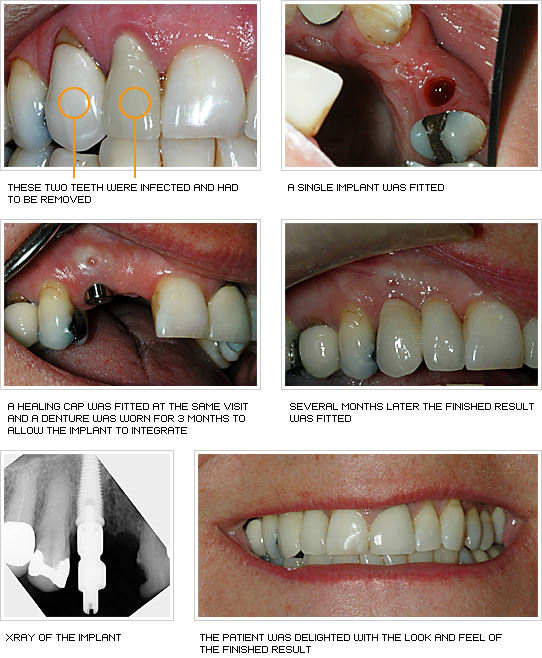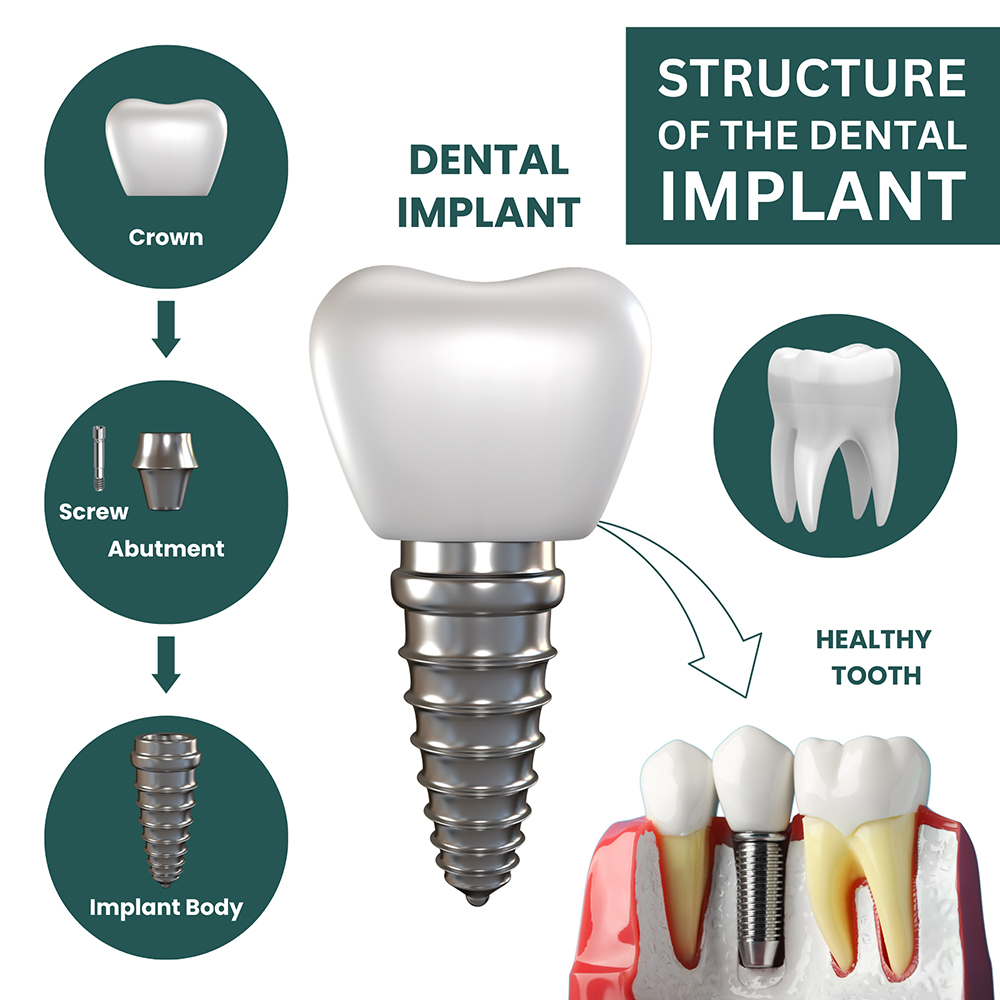Things about Dental Sense
Things about Dental Sense
Blog Article
Dental Sense for Beginners
Table of ContentsGetting The Dental Sense To WorkFacts About Dental Sense RevealedRumored Buzz on Dental SenseThe Of Dental Sense
are medical devices operatively implanted right into the jaw to recover a person's ability to chew or their appearance. They give support for fabricated (phony) teeth, such as crowns, bridges, or dentures. When a tooth is lost as a result of injury or condition, an individual can experience complications such as rapid bone loss, defective speech, or modifications to eating patterns that lead to pain.Oral dental implant systems are composed of an oral implant body and oral implant joint and might likewise include a joint fixation screw. Wisdom tooth cavity. The dental implant body is surgically placed in the jawbone instead of the tooth's root. The oral implant abutment is normally connected to the dental implant body by the abutment fixation screw and prolongs with gum tissues into the mouth to sustain the affixed synthetic teeth
(https://myanimelist.net/profile/dentalsense1)Structure of The Oral Implant System choosing oral implants, talk with your oral service provider regarding the possible advantages and risks, and whether you are a candidate for the treatment. Things to take into consideration: Your general health and wellness is a vital consider determining whether you are an excellent prospect for oral implants, how much time it will take to recover, and the length of time the dental implant might remain in location.
Cigarette smoking might affect the recovery process and lower the long-term success of the implant. The recovery process for the dental implant body may take several months or longer, during which time you usually have a short-term joint instead of the tooth. the dental implant treatment: Thoroughly comply with the oral health guidelines provided to you by your dental copyright.
Some Known Facts About Dental Sense.
Implant failure can cause the requirement for an additional surgery to take care of or change the dental implant system. Recovers the capacity to chew Recovers aesthetic appearance Aids keep the jawbone from reducing as a result of bone loss Protects the health and wellness of the surrounding bone and gums Helps maintain nearby (close-by) teeth stable Enhances lifestyle Damage to bordering natural teeth during dental implant placement Injury to the surrounding tissues during surgical treatment, such as sinus perforation Injury during surgery (for instance, crack of bordering jawbone) Insufficient feature, such as feeling like the teeth do not bite with each other normally A sensation that the tooth is loosened or twisting in area arising from a joint screw loosening up Implant body failing (looseness of the implant body) as a result of systemic infection, which might be most likely in patients with uncontrolled diabetics issues as a result of local infection in bone and gums sustaining the dental implant body as a result of delayed healing, which might be more probable in clients that smoke Difficulty cleansing the gums around the dental implant, resulting in inadequate dental health Unattended gum condition Post-surgical pins and needles because of nerve impingement or damage Always notify healthcare providers and imaging specialists that you have dental implants prior to any type of magnetic resonance imaging (MRI) or x-ray treatments.
FDA is not familiar with any kind of adverse events reported for MRI or x-ray procedures with oral implants. Oral implants systems are normally made of materials that adhere to global consensus requirements of the International Organization for Standardization (ISO) or ASTM International. check out here These criteria have information of what makes a secure product.

An oral implant is a structure that replaces a missing out on tooth. With screw-like gadgets, the specialist inserts an implant right into the jawbone, and it functions as an anchor for a synthetic tooth, called a crown. A gadget called an abutment connects the fabricated tooth to the oral implant. The crown is customized to fit the person's mouth and match the color of their teeth.
How Dental Sense can Save You Time, Stress, and Money.
Some people are not qualified for dental implant surgery. It is for dental doctors to run on people with: intense illnessuncontrollable metabolic diseasebone or soft tissue disease or infectionIf these problems are dealt with, a person can have the surgery. In, dental surgeons abstain from running on people with: If people with any of the above undertake dental implant surgery, there is a higher risk of the dental implant stopping working.

Dental implant surgery is a personalized procedure. Provide you time to recover. Affix the article and final crown, bridge or denture.
Next off, your cosmetic surgeon will meticulously place the oral implant right into your jaw. Lastly, your surgeon will certainly reposition your gum tissues and shut the laceration with stitches. If your implant is near the front of your mouth, your dental expert will make a short-term tooth for you to wear up until you heal. In this way, you won't have a gap in your smile while you recover.
What Does Dental Sense Mean?
During the healing stage, your jawbone should fuse to the oral implant. This procedure can take anywhere from three to 9 months.
Once your implant heals, your dental practitioner can connect the abutment (little adapter post) and your last repair (crown, bridge or denture). This normally takes concerning one hour to complete and might need a second small surgery. You should not really feel any pain during your dental implant treatment due to the fact that your company will certainly use drug to numb your gum tissues.
Report this page